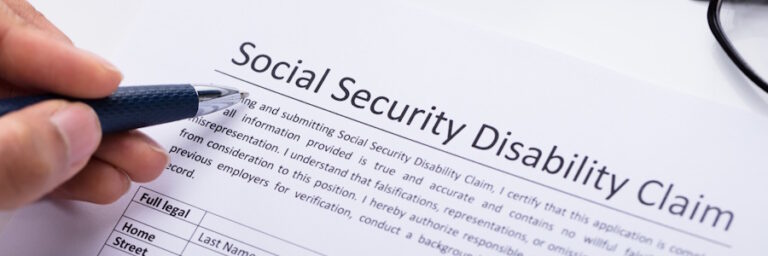
While you can collect unemployment while on Social Security disability or while applying for Social Security disability, it’s important to understand how the two programs are related, and to be aware of the potential pitfalls with collecting both benefits simultaneously. This article will discuss the interaction between the receipt of unemployment benefits and Social Security disability benefits.
Understanding Unemployment Benefits
Unemployment benefits are funds provided by the government or authorized bodies to individuals who have lost their jobs involuntarily. The main aim is to provide temporary financial aid to unemployed individuals who are actively seeking employment. The amount of unemployment benefits received is typically a fraction of the individual’s previous earnings. To be eligible, one must meet certain criteria, such as having worked for a certain period, losing a job through no fault of their own, etc.
In the State of California, unemployment benefits are administered through the Employment Development Department (EDD). In order to be eligible for California unemployment benefits, you must meet all of the following requirements:
- Have earned enough wages during the base period (here is how the base period gets calculated);
- Be totally or partially unemployed;
- Be unemployed through no fault of your own;
- Be physically able to work;
- Be available for work; and
- Be ready and willing to accept work immediately.
If you’re eligible, you can receive weekly unemployment benefits that range from $50 to $450, depending on your wages during the base period.
Note that you must certify criteria 4, 5, and 6 on a weekly basis in order to be eligible for ongoing unemployment benefits. This presents an issue for disability claimants and beneficiaries because Social Security disability is a benefit for those who are unable to work due to a medical condition. Certifying a readiness and willingness to work immediately presents a contradiction with alleging disability from all work.
Disability Benefits, In A Nutshell
Social Security Disability Insurance, or SSDI, is a federal program that offers financial assistance to people who are unable to work due to a disability. SSDI is an insurance type system that workers pay into through their FICA-taxed earnings. When a worker becomes unable to work due to a disability, they can claim their disability benefit. The monthly disability benefit is calculated based on their unique earnings record from work. The higher the amount of lifetime earnings, the higher the benefit amount.
A Social Security disability beneficiary can receive the benefit prior to reaching their full retirement age, so long as they continue to meet the medical and nonmedical requirements. In general, a disability beneficiary cannot work past a nine-month trial work period, and a claimant for disability cannot earn over $1,550 in gross income in 2024 and still be eligible. (Exception: a disability claimant who works and earns over $1,550 per month for less than six months, but stops working due to their disability. This is called an unsuccessful work attempt).
Can I Collect Unemployment While on Disability?
In California, the short answer is yes, you can collect unemployment and SSDI simultaneously. There is no state or federal law that prevents a disability beneficiary from collecting unemployment. However, because unemployment requires certification of a readiness and willingness to work, this certification raises potential issues for disability beneficiaries and claimants, since Social Security disability requires an inability to sustain full-time employment. Certifying an ability to work is viewed as inconsistent from disability from work for SSA (Social Security Administration) purposes.
This unemployment issue more frequently arises on continuing disability reviews. In a continuing disability review, the SSA reviews your medical records after the date of the most recent favorable decision. If they find evidence of medical improvement sufficient to return to work, the SSA will send a disability cessation letter, indicating that the medical rules for Social Security disability are no longer met.
During these reviews, especially before an administrative law judge (ALJ) who has access to records pertaining to the receipt of unemployment, you may be asked whether you actually felt you were ready and able to work during the months in which you collected unemployment. While the receipt of unemployment itself cannot be used as evidence for a denial or adverse determination, it can be used in weighing the credibility of testimony at a disability hearing. The unemployment benefit cannot be used by an ALJ in evaluating disability symptoms, but it can be used in evaluating the candor of testimony.
As you can see, as is typical when asking questions about the law, the answer depends on a number of factors and is not easy to summarize in a neat yes or no response. For a disability beneficiary, it’s important to understand that you can collect unemployment while receiving your Social Security disability benefit. You do not have to pay back the money to unemployment, or refund Social Security your disability benefit during months when you also received unemployment. However, you may be asked questions about the receipt of unemployment benefits when your disability is reviewed, and you should be prepared to answer honestly if an ALJ asks if you certified that you were ready and willing to work.
When Can You Receive Both Unemployment and Social Security Disability Benefits?
You can receive both unemployment and long-term disability benefits if you meet the eligibility criteria for both. This usually requires you to be unable to work due to a disability but also willing and able to work, which can be a difficult balance to strike.
Note, however, that there are other factors that determine when you can receive both unemployment and SSDI.
State regulations
The specific regulations can vary by state. Some states may allow you to collect both benefits simultaneously, while others may offset your unemployment benefits by the amount of your disability benefits. In California, you can collect unemployment while receiving Social Security disability benefits. However, in other states, for example, in Wisconsin, state law disqualifies SSDI recipients from seeking unemployment. Therefore, it’s important to research your local regulations and consult a local attorney before claiming unemployment benefits while on disability.
Timing of benefits
The timing of benefits can also play a role. In some cases, a worker is laid off from their job through no fault of their own. They file for and receive unemployment benefits, then they develop a disability that prevents them from returning to work. In those cases, they should switch their unemployment benefit to a State Disability Insurance (SDI) payment, then file for Social Security disability. In this scenario, there is no apparent inconsistency because the unemployment occurred prior to the disability onset date.
Full and partial unemployment
In the State of California, some workers may qualify for partial unemployment, which may involve a reduced benefit in consideration for a reduction in hours. In this case, there is no apparent inconsistency, since the recipient of unemployment is certifying a readiness and willingness to work on a part time basis, and Social Security defines the ability to work based on an eight-hour per day, five-day per week full-time schedule. Therefore, an ability to perform part-time work is still consistent with the inability to work as defined by the Social Security Administration.
Legal implications
As discussed above, it’s important to understand the potential legal implications before claiming unemployment benefits while seeking or receiving SSDI payments. This avoids potential unwelcome surprises during testimony at the hearing before a judge. Some judges will not approve disability for months in which unemployment benefits were collected, while other judges understand that people struggle to survive on a reduced income from disability, especially in expensive areas such as the Bay Area.
Professional guidance
An experienced disability attorney can help you navigate the complex interactions between various state and federal agencies, and they can help you understand the impact of claiming unemployment while on SSDI. If you have a disability hearing before a judge, your attorney will help prepare you to testify about the circumstances of claiming unemployment. In some instances, judges will accept an amended onset date, which changes the alleged date of disability to the date when unemployment benefits stopped. The attorney can also prepare you to testify with an explanation for the receipt of unemployment, such as the application for only part-time unemployment or that you were only applying for jobs that accommodate your disability.















